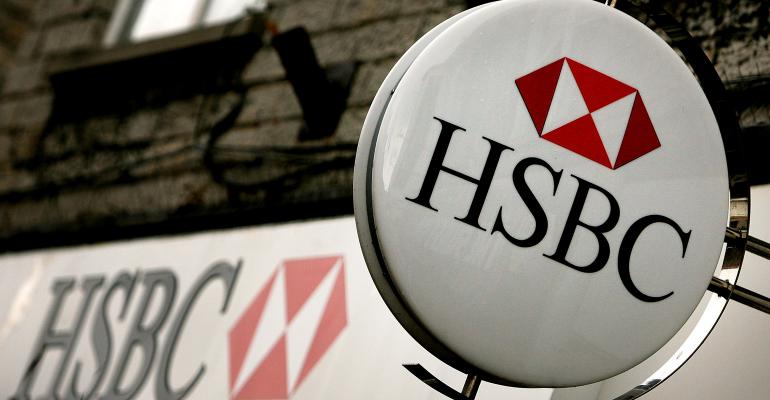By Rachel Armstrong and Lawrence White
LONDON, Oct 12 (Reuters) - HSBC has chosen John Flint as its next chief executive, it said on Thursday, with its recently-hired chairman opting for an insider to pursue a turnaround at Europe's biggest bank.
Flint, who runs HSBC's retail and wealth management business, will take over as CEO in February next year when Stuart Gulliver, 58, retires after seven years in the job.
The appointment is the first major decision taken by former AIA Group chief Mark Tucker, who joined HSBC on Oct. 1 as its first externally-appointed chairman.
Flint, who is not related to Tucker's predecessor Douglas Flint, is viewed by other HSBC executives as the safe option, having worked at the bank since 1989.

John Flint
During his career at HSBC Flint, 49, has worked across most of its businesses and spent his first 14 years in Asia, giving him the breadth of experience seen as vital for the CEO role.
"He has a great understanding and regard for HSBC's heritage, and the passion to build the bank for the next generation," Tucker said in a statement.
Flint emerged as the forerunner as expectations HSBC could appoint its first external CEO in its 150-year history waned.
The bank's share price ticked up modestly after the announcement, with the stock down 1 percent at 1144 GMT, having been down 1.5 percent earlier in the morning.
"If they went with external chairman and an external CEO, that's probably a little bit too much and that might cause a bit of uncertainty in the markets as to HSBC's direction and footprint going forward," said Benjamin Quinlan, CEO of Hong Kong financial services consultancy Quinlan & Associates.
Push for Growth
Flint's main task will be to grow revenues across HSBC's businesses, as it seeks to grow profits again following a period of restructuring after the 2008-9 financial crisis.
HSBC's previous management duo of Gulliver and Douglas Flint spent the years since their appointment in 2010 shrinking HSBC, after a period of empire-building in the run-up to the 2008 global financial crisis left the bank over-extended.
In July, HSBC announced its third share buyback in a year and rising profits, in a sign of its turnaround.
But the bank still faces a tough challenge to meet its long term goal of making a better than 10 percent return on equity.
In August last year HSBC abandoned a timetable for achieving that target, as increased regulatory requirements on capital, low interest rates and rising competition from low-cost competitors pressure lenders' profits worldwide.
Investors will watch closely to see whether Flint continues Gulliver's shift towards the bank's second home market of Asia.
HSBC said in 2015 it would hire 4000 staff and lend more in China's southern Pearl River Delta region, a plan that has since encountered some setbacks as China's growth slowed.
It has also lost market share in its Asian life insurance business, a trend which analysts expect the bank's new chairman to attempt to reverse given his background in the industry.
Flint spent much of his early carer in Asia, and has done stints in Hong Kong, Singapore, Indonesia, Thailand, and India as well as the United States and Britain.
Before taking on his retail and wealth role in 2013, he was HSBC's head of strategy and planning having previously run its global asset management business and was deputy head of its markets business as well as serving as Group Treasurer.
HSBC said Flint will be paid a base salary of 1.2 million pounds ($1.58 million) a year, as well as a fixed pay allowance of 1.7 million pounds and an annual pension allowance of 360,000 pounds. He will also be entitled to an annual bonus worth up to 215 percent of his base pay and a long-term incentive award of up to 320 pct of his base pay. ($1 = 0.7588 pounds)
(Reporting by Rachel Armstrong and Lawrence White; Additional reporting by Sumeet Chatterjee in Hong Kong; editing by Greg Mahlich and Alexander Smith)






